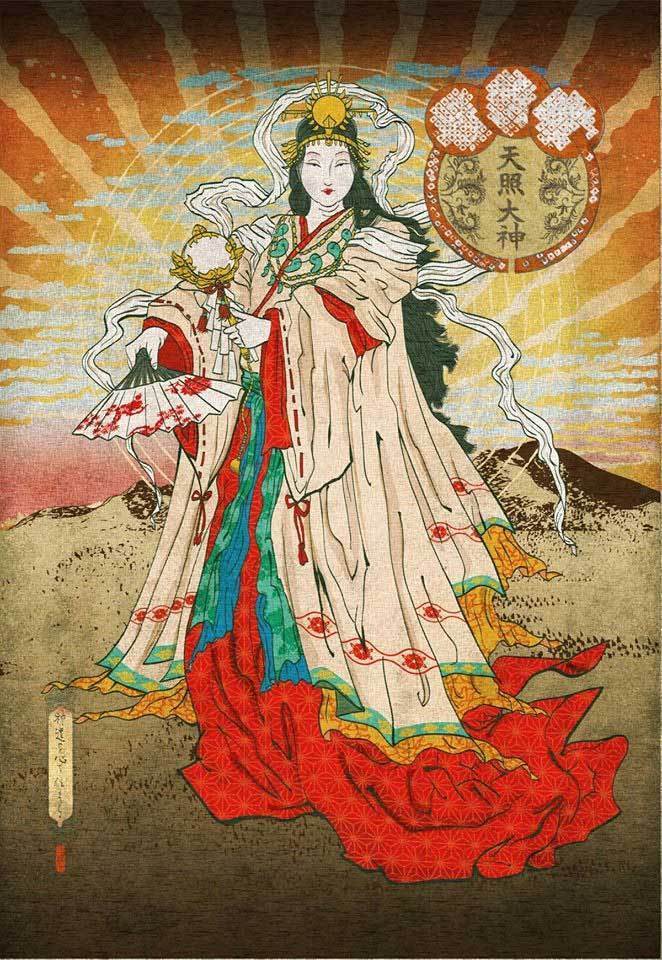
Dia 14 de novembro o Imperador Naruhito completou o ritual de sua ascensão ao Trono do Crisântemo do Japão, substituindo o seu pai, Akihito. Ele passou a noite isolado numa casa de madeira degustando pratos de cada uma das regiões do país; simbolicamente ele estava jantando com a sua ancestral, Amaterasu, a “deusa filha do Sol”.
Segundo a tradição, Naruhito é o 126º descendente do mitológico fundador do Império do Sol Nascente, o Imperador Jimmu, que teria vivido no século VI a.C. Jimmu é considerado o descendente direto da deusa. Entretanto, o registro histórico da dinastia remonta ao Imperador Ojin, que teria reinado no início do século V. A monarquia japonesa é a mais antiga – em continuidade – do planeta. Sob a lei japonesa as mulheres têm sido proibidas de imperar desde o final do século XIX.
Este processo de transferência do poder imperial teve início com a abdicação de seu pai, no dia 30 de abril passado. Akihito foi o segundo, apenas, na história do Japão, a tomar tal decisão (o único precedente fora o Imperador Kokaku, em 1817). No dia seguinte – 1o. de maio – Naruhito foi declarado Imperador. A este ato seguiu-se a sua entronização, juntamente com a sua consorte, a Imperatriz Masako, no dia 22 de outubro passado, levando milhares de japoneses às ruas de Tóquio para celebrar o auspicioso momento. A cerimônia contou com a presença de vários Chefes de Estado e da realeza internacional. O Presidente do Brasil, Jair Bolsonaro, também compareceu.
O que significa, atualmente, ser o Imperador do Japão?
Antes de mais nada, ele é o líder supremo da religião xintoísta, nome dado à espiritualidade tradicional própria ao país. A palavra “Shinto” – “caminho dos deuses” – incorpora práticas espirituais derivadas de diversas tradições pré-históricas japonesas; mas surgiu como religião formalmente centralizada somente a partir do século VI. Suas práticas seriam codificadas nos registros históricos a partir do século VII.
Até o final da II Guerra Mundial, o Imperador era considerado como sendo de natureza divina. Entretanto, a sua participação na vida política do país alternou-se ao longo dos séculos. Com a tomada do poder pelo Shogun Minamoto no Yoritomo, em 1147, que estabeleceu o xogunato de Kamakura, o Imperador tornou-se uma figura meramente ritual e simbólica. O Xogun, nomeado protocolarmente por ele, passou a ser, “de facto”, o verdadeiro dirigente do país. Isto até 1868 quando o Imperador Meiji resgatou o poder, dissolvendo-se o xogunato. A chamada “Restauração Meiji” deslanchou o processo de modernização do país que o transformaria na grande potência asiática na primeira metade do século XX.
Entretanto, o envolvimento profundo do Imperador Hirohito (1901/1989) no teatro da II Guerra Mundial levou os vencedores Aliados a impor a chamada “Declaração de Humanidade” – “Humanity Declaration” – que aboliu o apoio oficial do Estado ao xintoísmo e retirou a natureza divina do ocupante do trono do Sol Nascente. Foi estabelecida (na verdade, imposta pelos Aliados vencedores) a chamada “Constituição Pacifista”, que no seu artigo 9º estabeleceu que o “povo japonês renuncia eternamente à guerra”. A partir de então, o papel do Imperador voltou a ser protocolar. Foi a punição alternativa a uma pena mais drástica contra Hirohito, que poderia ter sido declarado “criminoso de guerra” pelo Tribunal de Tóquio e, como tal, passível de pena capital.
Mas, quão protocolar é, na realidade, o papel do Imperador?
O universo político japonês é muito complexo. Apesar de um único partido – o Partido Liberal Democático (DPL) – dominar inteiramente a cena desde 1955, há uma multiplicidade de outras denominações políticas. Entretanto, o partido “onipotente” é, na verdade, uma miríade de lideranças subpartidárias que disputam a hegemonia entre si, em conluio com a elite da burocracia e grupos de pressão, entre os quais o influente empresariado. E não podemos esquecer a presença ativa da extrema direita, nacionalista e xenófoba, e da presença conspícua da Yakuza, que é considerada uma organização semi-legitimada e atua de forma ativa no apoio à população em tempos de tragédias nacionais, como no terremoto de Kobe e no tsunami de 2101, quando seus grupos abriram escritórios para refugiados e enviaram dezenas de caminhões com suprimentos para áreas afetadas.
Em meio a este universo estável/instável, o esteio do Estado é a figura – ainda “sagrada” para a maioria da população, sobretudo os idosos – do Imperador, como baluarte da nacionalidade e dos valores do que “ser japonês” significa num país em crescente mutação, envelhecimento, e “ameaçado” pela emergência dos seus vizinhos regionais – China e Coréia do Sul. E que mesmo assim se mantém como a terceira maior economia do planeta.
.
O jantar com Amaterasu é certamente a simbologia necessária para incentivar o país do Sol Nascente a conviver com o Século da Ásia…
よろしくお願いします
YoroshikuonegaishimasuSobre este siteVEJA.ABRIL.COM.BRNaruhito ‘passará noite com deusa’ em ritual após ser nomeado imperadorCom custo estimado em mais de R$ 100 mi, cerimônia representa encontro de Naruhito com a deusa do sol, de quem o imperador é descendente pela tradição
Doutor em Direito Internacional Público em Paris. Ingressou na carreira diplomática em 1976, serviu nas embaixadas de Bruxelas, Buenos Aires, Nova Déli, Washington, Pequim, Tóquio, Islamabade (onde foi Embaixador do Brasil, em 2004). Também cumpriu missões transitórias no Vietnã e Taiwan. Viveu 15 anos na Ásia, para onde orientou sua carreira por considerar que o continente seria o mais importante do século 21 – previsão que, agora, vê cada vez mais perto da realidade.
